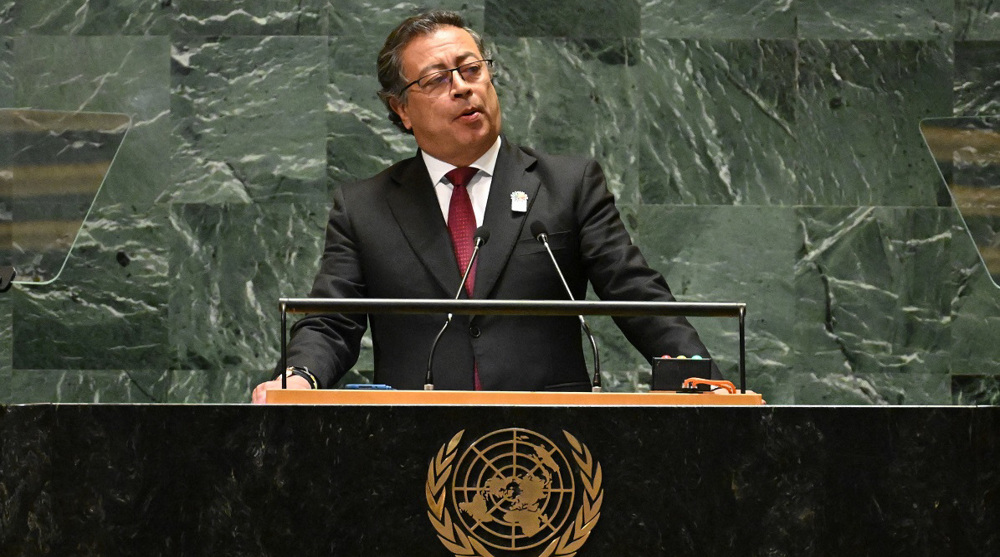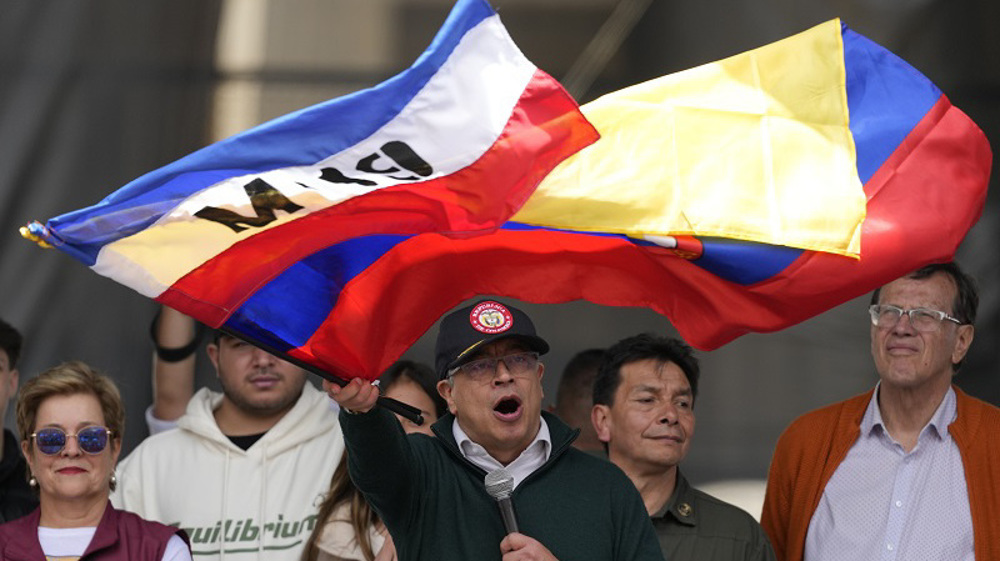Colombia’s tax reform withdrawal a failed ‘trick’ to stop nationwide rallies: Analyst
The withdrawal of a tax reform plan by the Colombian government was an attempt to “trick” protesters into refraining from holding rallies across the South American country, says a US political commentator.
Dan Cohen, American journalist and filmmaker, made the comments in a Tuesday edition of The Debate program on Press TV as he was speaking about Colombian security forces’ heavy-handed crackdown on anti-government protests over a tax reform proposal and the continuation of rallies despite withdrawal of the controversial plan.
Colombian President Ivan Duque’s government introduced the tax reform bill on April 15 with the aim of generating $6.3 billion between 2022 and 2031 to reignite the fourth largest economy in Latin America.
The proposed reform was seen by protesters as a means of increasing taxes on individuals and businesses and eliminating many exemptions.
Faced with the unrest, the Colombian government ordered that the proposal be withdrawn from Congress on Sunday and said it would draw up another reform proposal after consultations with lawmakers, the civil society, and businesses.
People have, however, defied calls for halting the anti-government demonstrations and continued protests in the country's capital, Bogota, and other Colombian cities by blocking roads and junctions.
Cohen told Press TV that Ducan’s announcement of withdrawing the reform proposal was an attempt to “trick the population into stopping the protests.”
The US journalist said the Colombian president first announced that he would withdraw the reform bill but later said he would draw up a new one and that was how the trick failed as the protest started to grow and demands continued to add up.
Cohen also described Colombia as a country “in absolute crisis, particularly because of its financial system that its ruling class uses.”
Ollie Vargas, a Bolivian journalist, was the other panelist invited to The Debate program and said the anti-government protests in Colombia stemmed from the people’s loss of faith in the system.
“Colombia is a country that does not have big industries that can be provided with revenues, that can have the funds it needs to satisfy basic demands of the ordinary people so we see people lose faith in the system that Colombia has had for decades and maintained with an iron fist,” Vargas said.
“It’s a general uprising, it’s not about one policy; this policy was of course a trigger, it’s a much wider rebellion,” he added.
The Bolivian journalist called Colombia a key US ally with the largest number of US military bases in the South America region and said it was a key player in destabilizing other countries, namely Venezuela.
The now-canceled tax reform by the government of the Colombian president has drawn widespread anger over the past week and triggered violent rallies across the Latin American nation.
The United Nations and the European Union have condemned the "excessive use of force" during anti-government protests in Colombia, which has led to scores of deaths and injuries.
Latest official figures showed that at least 19 protesters were killed and more than 800 others sustained injuries in fierce clashes with security forces during five days of anti-government demonstrations.
Colombia's economy shrank by 6.8 percent in 2020 — its worst performance in half a century — due to coronavirus restrictions, with unemployment reaching 16.8 percent in March and 42.5 percent of the population living in poverty.
VIDEO | Press TV's news headlines
Iranian satellites launched into space as private sector debuts in space industry
VIDEO | Iran, Azerbaijan conduct joint maritime rescue operations
VIDEO | Yemen’s Red Sea divide: Naval forces block Israeli-linked ships in strategic ‘parting of the water’
VIDEO | Southern Gaza: Israel’s facade for famine and suffering
VIDEO | IOF hampering humanitarian aid
VIDEO | Sharmahd: Justice Done
Iran repeatedly warned Israel not to test its will: FM











 This makes it easy to access the Press TV website
This makes it easy to access the Press TV website